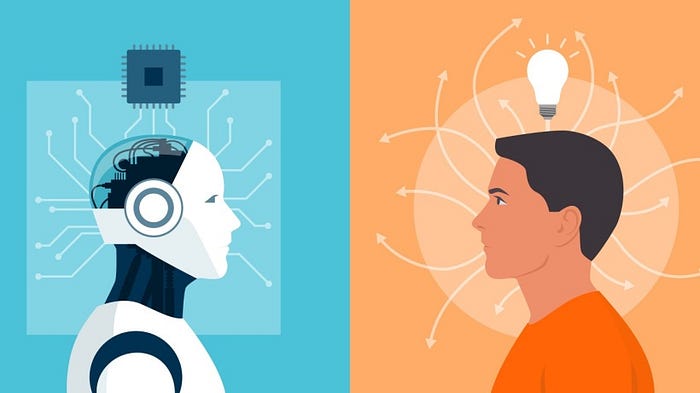
Artificial intelligence (AI) has evolved from a tool for automating tasks to a creative force capable of generating everything from written articles to artwork and music. As AI-driven content creation becomes more advanced, the question arises: Will machines eventually replace human creativity? In this article, we’ll explore how AI-generated content works, its benefits, limitations, and what the future may hold for human creativity in the face of advancing technology.
1. How AI is Creating Content
AI-generated content leverages machine learning models like OpenAI’s GPT or DALL·E to produce text, images, music, and even videos. These models are trained on vast datasets, allowing them to understand patterns and recreate styles.
AI is already being used to write blog posts, create advertising copy, generate social media posts, and even produce news articles. The key here is that AI can process massive amounts of information faster than a human, making content generation scalable and efficient.
2. Benefits of AI-Generated Content
AI-generated content offers several advantages for businesses, creators, and marketers:
- Efficiency: AI can produce content at scale, reducing the time needed for research, drafting, and revisions.
- Personalization: AI can analyze user data to create highly personalized content based on preferences, making marketing campaigns more effective.
- Cost-Effective: Automating content creation can cut costs for companies that need consistent, high-volume output, such as news organizations or online stores.
However, while the efficiency and speed of AI are undeniable, it still faces limitations when it comes to human-like creativity.
3. Can AI Match Human Creativity?
While AI excels at mimicking patterns and following set rules, true creativity involves originality, emotional depth, and the ability to think abstractly — areas where humans still outperform machines.
- Originality: AI can generate content based on existing data, but it struggles to create truly original ideas or narratives that don’t follow an existing framework.
- Emotion and Intuition: Human creativity often taps into emotions, experiences, and intuition. AI lacks the ability to understand these deeper, subjective experiences.
- Context and Nuance: AI-generated content can sometimes lack the nuance, context, or subtle humor that makes human-created content relatable and engaging.
For now, while AI can assist with certain aspects of creativity, it cannot fully replace the human touch.
4. Collaboration Between AI and Humans
Instead of seeing AI as a threat to human creativity, many experts believe the future lies in collaboration. AI can serve as a powerful tool that enhances human creativity, not replaces it.
- Inspiration and Idea Generation: AI can help creators by suggesting ideas, offering new perspectives, and assisting with repetitive tasks, freeing up humans to focus on higher-level creative processes.
- Enhanced Creativity in Art and Music: Musicians, artists, and filmmakers are already using AI to enhance their work. For example, AI can compose melodies or generate visual effects that artists can then refine.
This collaboration opens up new possibilities for creativity, where machines help humans push the boundaries of innovation.
5. The Future of AI in Creative Industries
As AI technology improves, we’re likely to see more sophisticated tools for creators. However, instead of AI replacing human creatives, it will likely evolve into a co-pilot — offering assistance while leaving room for uniquely human creativity.
- Ethical Considerations: There will need to be clear guidelines on the use of AI in creative industries, especially regarding ownership, authorship, and transparency about AI’s role in content creation.
- Job Evolution: Rather than eliminate jobs, AI may transform them. Content creators may focus on more strategic, innovative work, while AI handles routine tasks.
AI-generated content is a powerful tool that can boost productivity, efficiency, and even creativity. However, it is unlikely to fully replace human creativity, which is driven by emotion, intuition, and originality. The future of content creation is likely to be a collaboration between humans and machines, where AI enhances rather than replaces our creative potential.




0 Comments